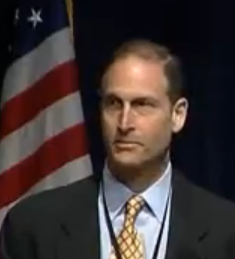A Quote by Bill Foster
I supported and voted for the public option in the version of the Affordable Care Act passed by the U.S. House. Had it been incorporated into the final version of the ACA, it would have done much to increase the competitiveness of ACA Exchange Marketplaces.
Related Quotes
My biggest fear, that 27 percent of Americans under 65 have an existing health condition that, without the protections of the Affordable Care Act, would mean they would - could be automatically excluded from insurance coverage. Before the ACA, they wouldn't have been able to get insurance coverage on the individual market, you know, if you're a freelancer or if you had a small business or the like.
I served on the committee in the U.S. House that wrote the Affordable Care Act. I defended it back home in endless town halls. I got elected to the Senate, and when no one wanted to stand up for the ACA in its early days, I took up the cause, going to the Senate floor nearly every week to extol its virtues.
Two committees in the house were up all night long trying to get a version of the repeal of the Affordable Care Act passed. House Republicans are just fighting tooth and nail to pass it in the House, to try to get it into the Senate, to try to make it then so that the Senate will get on board. But you know who one of the Republican senators is who`s not on board with this anymore? Senator Tom Cotton.
The Affordable Care Act is a huge problem. [Repealing the ACA is] going to have huge implications. We have millennials that live in Boston that are on their parents' health insurance. The businesses have hired them and have been able to hire more people because they have been able to be on their own health insurance. We have seniors in our city who have preexisting conditions, or something called a "donut hole," which is a prescription drug [gap] in Medicare. Whatever changes they make could have detrimental effects on people's health care, but also on the economy.
I had wanted to make this film [Suffragette] for over a decade. There has never been a cinematic rendition of this story. I had not been taught any of the history of the movement at school, and the version I had gleaned had been the Mary Poppins story of women in large hats, petitioning. There was another version.


































